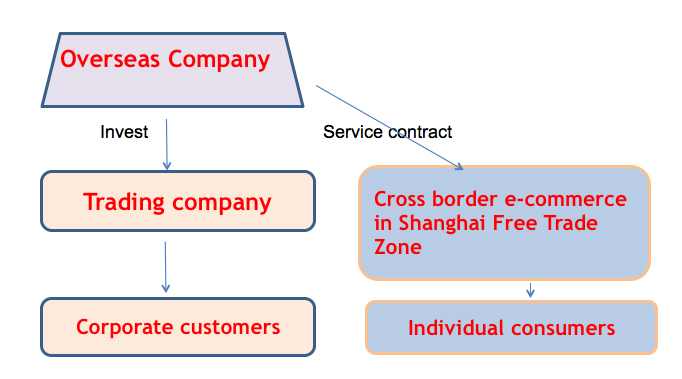
Cross Border eCommerce in China
In recent years, due to the huge potential of China’s consumer goods market, more and more global retailers have turned their attention to China. Ten years ago, not only were there fewer choices of goods, the payment and after-sales service were both extremely inconvenient and ineffective. With the rise of the e-commerce industry, not only have consumers adjusted their consumption habits, enterprises also have dual investment channels: traditional mode and e-commerce mode. In Figure 1 we demonstrate how foreign companies invest in China.

Figure 1: How Foreign Companies Invest in China
It is obvious that a single traditional or e-commerce mode can no longer meet the rapid development of the consumer goods market. We suggest that you invest in China in two parallel modes. This can make up for the time gap in the establishment of companies due to obtaining licenses, and also accurately target companies and individual users.
As a professional services agency, ECOVIS Ruide China provides you with comprehensive services for entering the Chinese market, including compliance, strategic investment, taxation and finance, to reduce the potential adverse conditions caused by an unfamiliar investment environment.
If you are a foreign company looking to invest in China, feel free to contact us to see how we can assist you.


